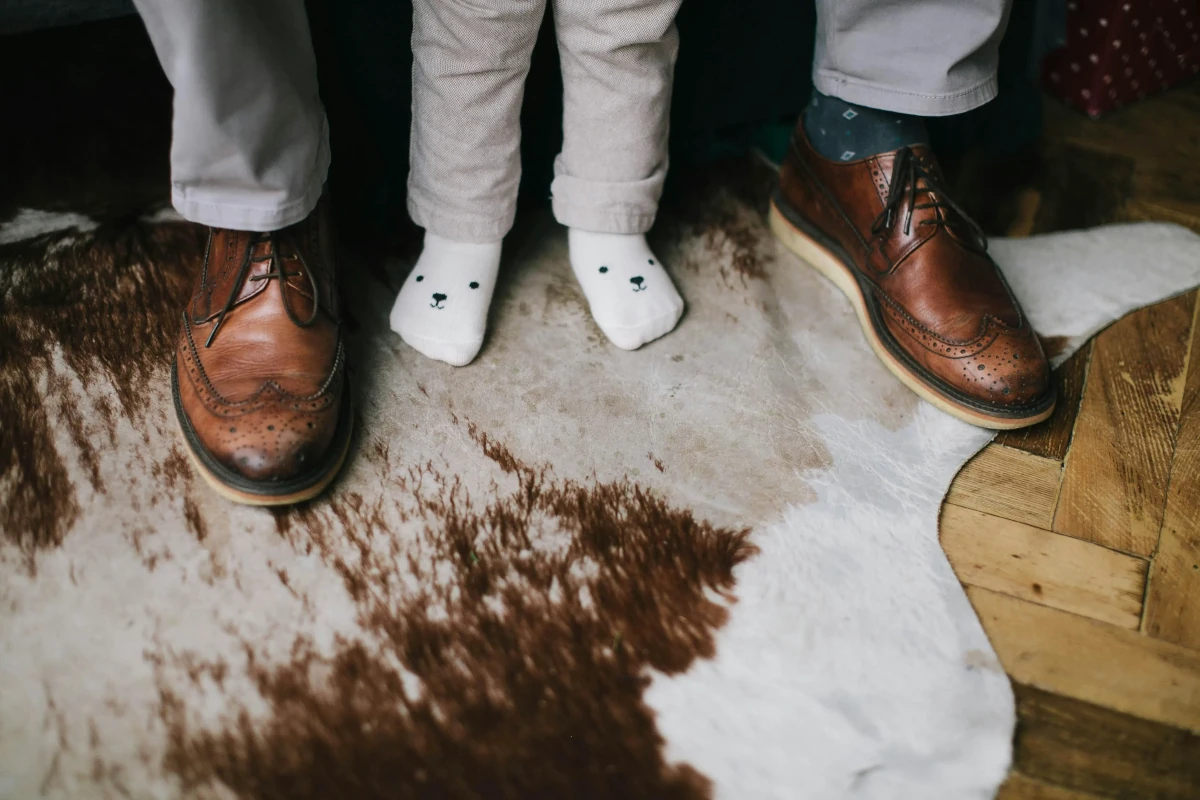Postpartum depression in dads is more common than we think—here’s why it often goes unrecognized and what new fathers can do to navigate the challenges.
I always thought I was a fairly vulnerable man.
In my late 20s, I did "the work" to put the past in its place, reconcile with myself, and learn that nothing I had experienced needed to be a source of embarrassment. While co-founding Shift Collab, I worked as a full-time speaker on the college and corporate circuit, comfortable speaking to hundreds of people about the lies we live.
I applied that same approach to my personal life, gradually letting go of relationships that didn’t allow for total openness. At work, too, we built a culture around transparency—there was no hiding, and no reason to hide. Or so I thought.
Then Fatherhood Changed Things
But recently, that’s changed; and now I’m more of a statistic than ever before.
I became a dad in 2021 to Miller and again in 2024 to Maeve. While I felt some kind of shift backwards, emotionally speaking, with one child, with my second, it’s more pointed—more acute.
Quick disclaimer: both are beautiful, healthy, and we’re totally in love with them. That said, it’s no secret that being a new dad is hard in both tangible and intangible ways.
The Tangible and Intangible Challenges of Fatherhood
The tangible challenges are obvious—little sleep, endless logistics, making sure the kids are fed, clothed, learning, growing, and more. It’s hard because it’s a lot.
But it’s also hard in the ways you can’t measure. It’s emotionally loaded with worries about providing for my family (yes, the gendered trope is still alive and well). And that’s just the beginning. The worries spiral: Will my son grow up anxious? Will my daughter be strong? Will they look back on these years with joy, fear, or indifference?
Isolation and Avoidance: The Signs I Missed
How new dads cope is a mixed bag. In my case, I didn’t cope for a long time because I didn’t even recognize the issue. I isolated myself, telling friends and family I was “too busy” to stay in touch. But even in my isolation, I didn’t make time for myself. I numbed out with YouTube, politics podcasts, and tech reviews—anything to avoid my own thoughts. I stopped working out regularly, telling myself I didn’t have the energy. I wasn’t a better partner, promising I’d get to it... eventually.
I thought it was temporary. But it wasn’t. It became the new normal. When my wife asked what was wrong, I’d just mutter, “I’m frustrated,” as if that told her anything she didn’t already know. It was my excuse to be sad, or in weaker moments, petulant.
Postpartum Depression in Dads Is Real
Gradually, it became clear: I was one of the 10% of dads who experience postpartum depression.
Only 3-4% of new fathers with depression symptoms actually get treatment. Most don’t recognize their symptoms as depression; instead, they say they’re "stressed" or "burnt out."
And honestly, it’s no wonder. New dads lose an average of 13-15 hours of sleep per week in the first year, increasing the risk of depression by 3-4 times. Nearly half of new dads report significant work stress as they try to balance career and parenthood. And 67% of couples report a decline in relationship satisfaction during the first three years of parenting.
On top of that, men experience hormonal changes during their partner's pregnancy and after childbirth—lower testosterone, higher prolactin, and vasopressin. These shifts can affect mood and behaviour, making depressive symptoms more likely.
What Can We Do About It?
The cumulative impact of all this? It's no wonder many new fathers feel bleak.
So, what can we do?
Let me resist the urge to give you a list of five ways to beat the daddy blues—because the truth is, there’s no definitive checklist.
What I will say is that it starts with recognizing that this isn't just stress or burnout. It’s real. It’s heavy. And there’s no shame in that. Talk to someone—whether it’s a friend, a partner, or a therapist. Find spaces where you can be vulnerable, even when it feels uncomfortable. And most importantly, give yourself the grace to be human. Parenthood is tough, and so are you, but you don’t have to carry the weight alone.
Let’s start normalizing this. For all the dads out there who feel like they’re barely holding it together—you’re not alone. And there’s hope.
























